Publications
Articles, publications, books, tools and multimedia features from the U.S. Institute of Peace provide the latest news, analysis, research findings, practitioner guides and reports, all related to the conflict zones and issues that are at the center of the Institute’s work to prevent and reduce violent conflict.
Question And Answer
Why Counterterrorism in Afghanistan and Pakistan Still Matters
Question And Answer
What Does the Xi-Ma Meeting Mean for Cross-Strait Relations?
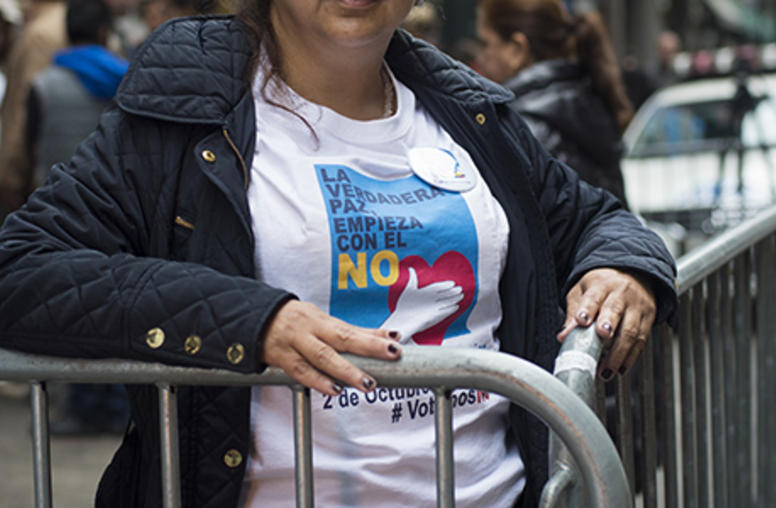
Q&A: Colombians Narrowly Reject Peace Deal
Colombian voters yesterday defied projections by pollsters and rejected a peace accord that their government had negotiated during four years of talks with the Revolutionary Armed Forces of Colombia (FARC-EP). The agreement was intended to end more than a half century of violent conflict that has left well over 220,000 dead and close to 8 million victims, including more than 6 million people forcibly displaced. USIP’s Senior Advisor for Peace Processes Virginia M. Bouvier explains why voters ...
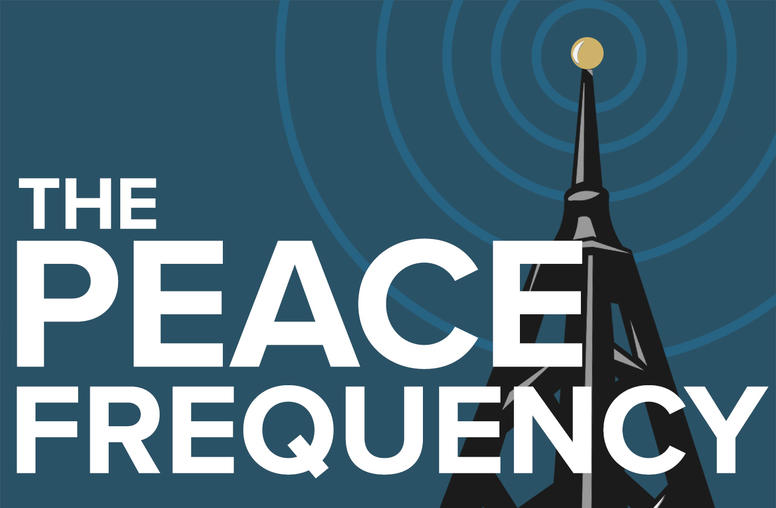
Episode 40 - Marc Sommers
In this episode of the Peace Frequency we continue our series focused on the #YouthPeaceEquality 60 Days of Engagement. Our guest is Marc Sommers, who is an internationally recognized youth, conflict, development, gender, and education expert, an experienced evaluator, and an award-winning author. He has conducted research, assessments and evaluations, and provided technical advice, in 21 war-affected countries (15 in Africa) since 1990. His most recent book is entitled, The Outcast Majority: War, Development, and Youth in Africa.
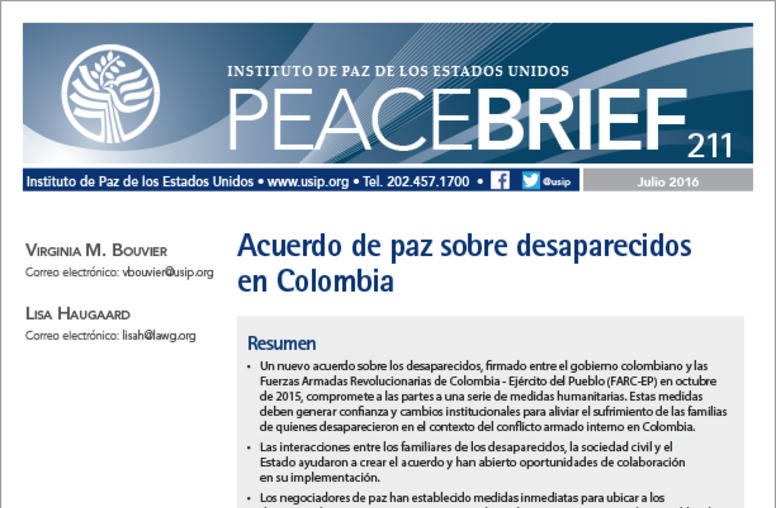
Colombia’s Peace Accord on the Missing (Spanish)
Las desapariciones forzadas son un legado de medio siglo de conflicto armado interno en Colombia. Afectan a sectores pobres en el campo y en los centros urbanos, trabajadores, campesinos y campesinas, periodistas, defensores y defensoras de los derechos humanos, políticos de la oposición y lideres y lideresas afro-colombianos e indígenas. Además, miembros de las fuerzas públicas y de la guerrilla han desaparecido en el contexto del conflicto armado colombiano. Este informe analiza un acuer...
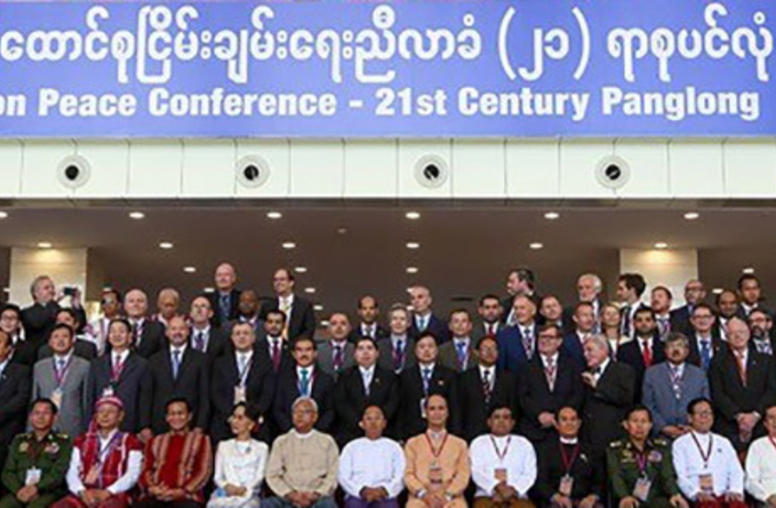
Q&A: Myanmar’s Peace Process, Suu Kyi Style
Four days of talks last week restarted Myanmar’s peace process almost a year after a Nationwide Ceasefire Agreement was signed by some but not all of the country’s armed groups. The process, known as the 21st Century Panglong Conference, or Union Peace Conference, is intended to convene every six months and aims to end the decades-long conflicts between and among the Myanmar army and an array of rebel groups. Vanessa Johanson, the Myanmar country director for the U.S. Institute of Peace, exam...
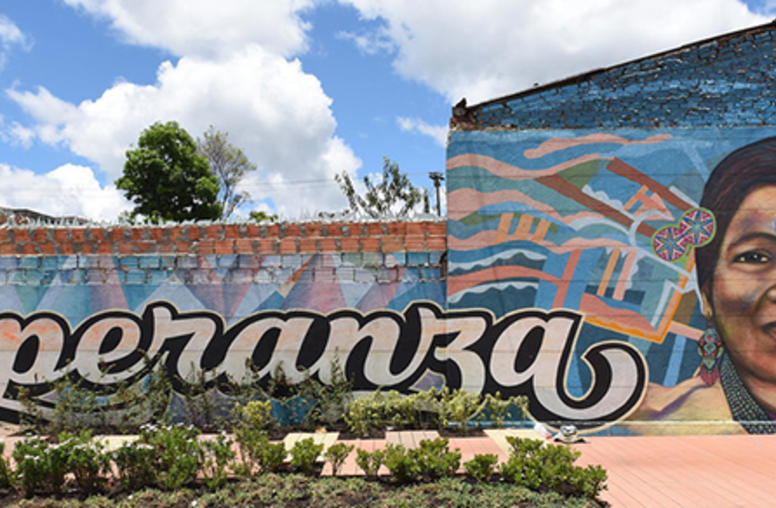
Q&A: Colombia Peace Deal Announced — What’s Next?
After 52 years of armed conflict, the Colombian government and the country’s oldest rebel group, the Revolutionary Armed Forces of Colombia (FARC-EP), announced a final agreement last night aimed at ending one of the world’s longest-lasting insurgencies. The U.S. Institute of Peace’s Virginia M. “Ginny” Bouvier, who has studied the peace process from the outset and advised Colombian government officials, civil society and others promoting a political solution to the conflict, comments on the ...
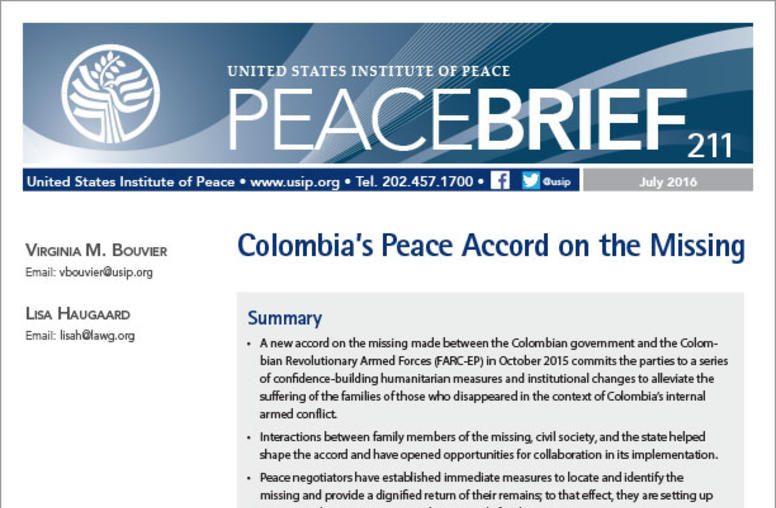
Colombia’s Peace Accord on the Missing
Forced disappearances are a legacy of Colombia’s half-century of internal armed conflict. They have affected the rural and urban poor, labor and peasant organizers, journalists, human rights defenders, politicians, and Afro-Colombian and indigenous leaders. Likewise, in the context of Colombia’s war, members of the military and guerrillas have also gone missing. This brief examines an agreement on the missing reached in October 2015 between the Colombian government and the Colombian Revolutio...
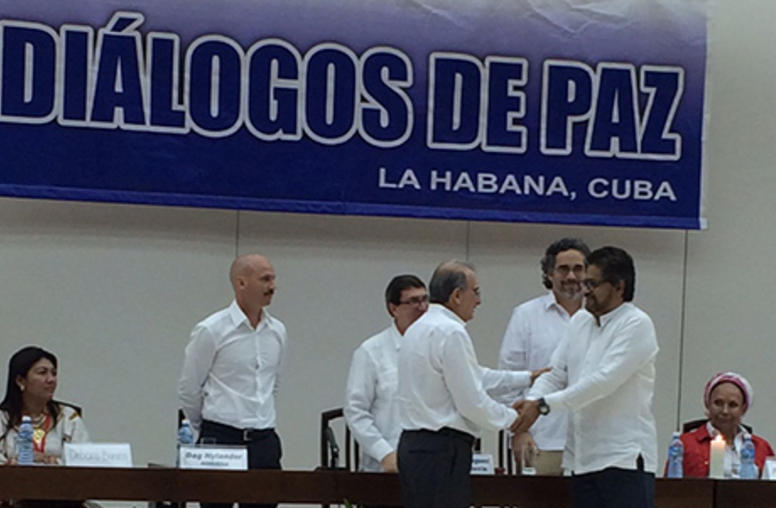
Q&A: Colombia Cease-Fire Accord Marks Historic Turn
More than a half-century of internal warfare in Colombia is on the brink of a peaceful resolution after four years of talks that suggest how other seemingly intractable conflicts in the world also might be brought to an end. With the announcement yesterday of a ceasefire between the government and the Revolutionary Armed Forces of Colombia (FARC-EP), the adversaries in one of the world’s oldest guerilla insurgencies disclosed new agreements on the two major issues that were holding up a final...
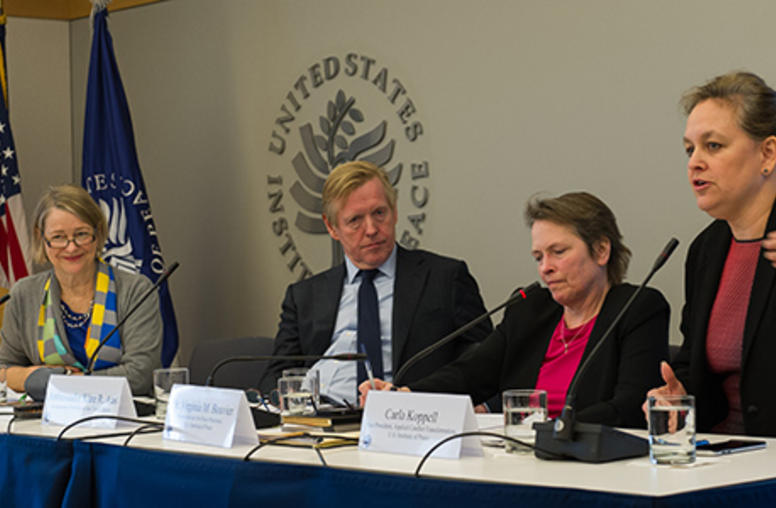
Women and Peace: A Special Role in Violent Conflict
In Liberia, women, excluded from talks to end the country’s civil war, besieged negotiators until they signed a deal. In Guatemala, where insurgents and the government each had a female delegate in talks, pressure from women put indigenous, gender and labor rights into an accord. In Northern Ireland, women placed the needs of victims and political prisoners on the agenda after winning a role in peace negotiations. Wherever there’s an effort to settle violent conflict, women’s involvement impr...
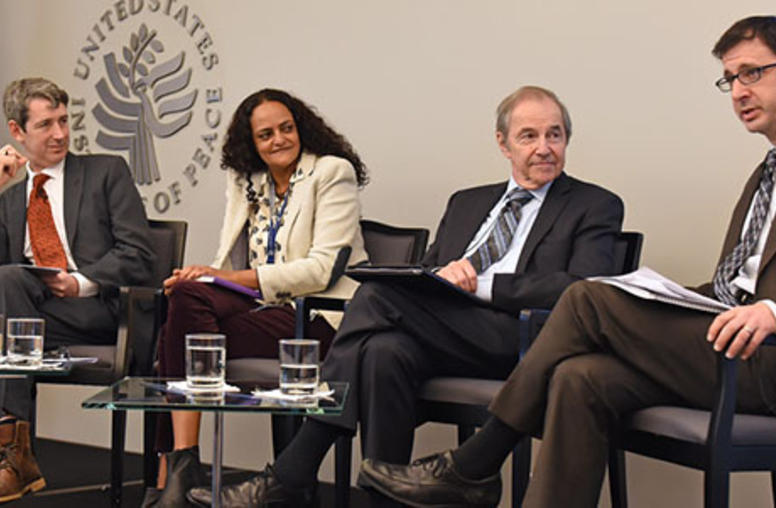
Patronage and Peace in the Horn of Africa
Peacebuilders in the Horn of Africa and across the larger Middle East are likely to get better outcomes with a greater understanding of the region’s “political marketplace,” where loyalties based on financial and economic means seem to create more stability than classic institution-building, according to Alex de Waal, executive director of the World Peace Foundation and a professor at Tufts University. But rather than succumbing to illegitimate patronage, some experts say the answer may lie i...
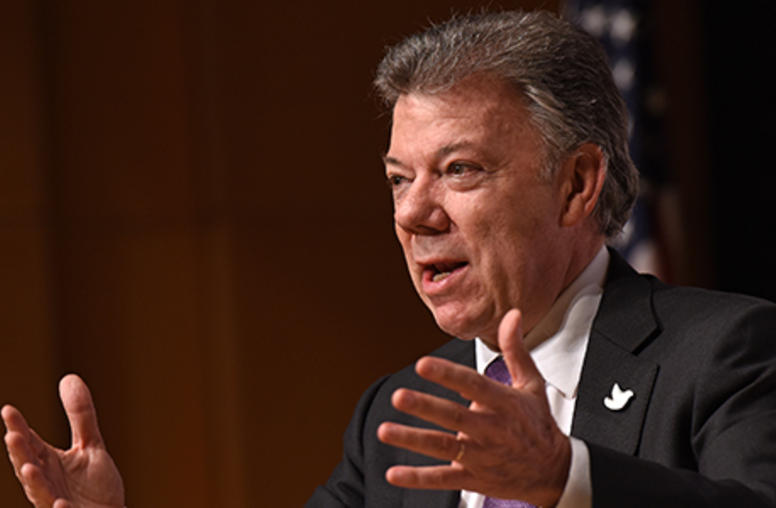
Colombian President Says 51-Year War May End Next Month
Colombian President Juan Manuel Santos said his government and the country’s biggest guerrilla group likely will be able to sign a final peace accord close to their self-imposed deadline of March 23, ending more than half a century of internal conflict. Speaking today in Washington at an event co-hosted by the U.S. Institute of Peace, Santos said his government will return to the ongoing negotiations in Havana with new procedures aimed at expediting the final phase.